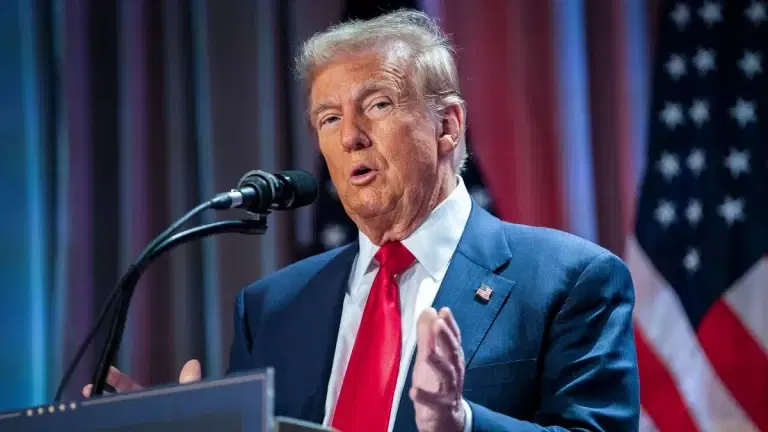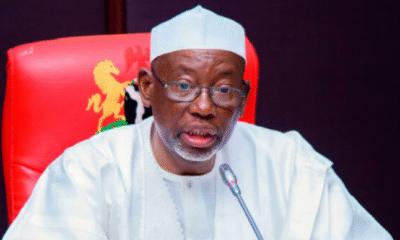National News
Trump approves travel ban on 12 countries, citing security concerns

In a sweeping immigration move, U.S. President Donald Trump has approved a new travel ban targeting 12 countries, effectively barring their citizens from entering the United States.
The order, signed on Wednesday, will take effect on June 9, 2025, just after midnight U.S. time (5:01 a.m. Nigerian time).
The affected countries facing full entry restrictions include: Afghanistan, Myanmar, Chad, Congo, Equatorial Guinea, Eritrea, Haiti, Iran, Libya, Somalia, Sudan, and Yemen. Citizens from these nations will be denied entry under all travel categories.
According to the White House, the directive is part of Trump’s broader agenda to strengthen U.S. immigration controls during his second term. It follows an earlier security order signed on January 20, which instructed top cabinet officials to review foreign governments’ compliance with U.S. vetting standards.
In the same executive order, the Trump administration also placed partial restrictions on travellers from Burundi, Cuba, Laos, Sierra Leone, Togo, Turkmenistan, and Venezuela. These individuals will face heightened scrutiny, including reduced visa approvals and tighter background checks.
Explaining the rationale behind the decision, President Trump stated that some of the banned countries are home to active terrorist organizations, while others lack adequate identity management systems or fail to cooperate with U.S. authorities in verifying the criminal or immigration history of their citizens.
Trump also pointed to the high rate of visa overstays among nationals from the listed countries as another key factor in implementing the ban.
“This action is about protecting American citizens and our national security,” the president said. “We must ensure that those entering our country are properly screened and do not pose a threat.”
This latest move echoes Trump’s controversial 2017 travel ban during his first term, which affected several predominantly Muslim countries. That ban sparked widespread protests and legal challenges but was ultimately upheld by the U.S. Supreme Court in 2018.
However, the policy was reversed in 2021 by President Joe Biden, who described it as discriminatory and counterproductive.
Now, with Trump back in office, his administration appears committed to reinstating and expanding tough immigration restrictions as a central part of its national security strategy.
-

 National News2 days ago
National News2 days agoSenator Natasha phone number cloned in alleged cyber impersonation scheme
-

 Metro News1 day ago
Metro News1 day agoGovernment uncovers 7,000 ghost workers on payroll
-

 Education1 day ago
Education1 day agoStop studying useless courses – Odumeje sparks debate with advice to Nigerian students
-

 Politics1 day ago
Politics1 day agoPDP targets David Mark as new party chairman
-

 Entertainment1 day ago
Entertainment1 day agoMixed reactions as church members dance to Davido, Omah Lay’s song during service
-

 Metro News1 day ago
Metro News1 day agoDetails emerge on young graduate who d!ed in Cocoa House fall
-

 Sports1 day ago
Sports1 day agoTransfer: Saudi club unveils Inzaghi as new manager
-

 Crime and Law2 days ago
Crime and Law2 days agoHarassment: Courts summon Akpabio, Nwaebonyi over alleged defamation, Natasha’s rights violations






















